With every increase of technology and living standards, our consumption of energy also grows exceedingly. As the beating heart of every modern household, the HVAC (Heating, Ventilation, and Air Conditioning) system certainly demands a significant portion of this energy pie. Add the imperative demands of energy conservation and climate change to the mix, and it becomes increasingly important to ensure our HVAC systems are as efficient as possible. That’s where energy audits come in – providing a comprehensive approach to identify savings and improvements in these systems.
The Concept of Energy Audit
An energy audit is an inspection, survey, and analysis of energy flow for energy conservation in a building to reduce the amount of energy input without negatively affecting the output. It helps uncover how much energy a home uses, where it gets wasted, and what can be done to enhance efficiency and consequently, reduce utility bills.
The nexus of this extensive examination lies in the HVAC system. It is the largest energy consumer in a home, comprising approximately 40% of the entire energy use. As such, the identification of waste points and areas of inefficiency within this system becomes the prime directive of an energy audit.
Benefits of an HVAC Energy Audit
Beyond identifying savings through detecting inefficiencies, an HVAC energy audit can also unveil potential improvements to your system. We’ll look at these primary benefits below:
1. Cost savings: An inefficient HVAC system operates harder than necessary, consuming more power to maintain comfortable indoor temperatures. The energy assessment enables you to pinpoint and fix inefficiencies, reducing power usage, and thus, energy costs.
2. Enhance indoor comfort: A thorough HVAC energy audit helps identify the cause of unwelcome fluctuations in indoor temperatures. Say your heating system isn’t able to adequately heat your home, or your AC won’t keep it cool enough. Both scenarios can be exposed through an energy audit, leading to implemented improvements to cut the swings in temperatures.
3. Improve indoor air quality: An energy audit includes an inspection of ventilation systems, which are vital for maintaining good indoor air quality. It may reveal inefficient ventilation or filtration systems that can contribute to poor indoor air quality.
4. Environmental responsibility: By maximizing your HVAC system’s efficiency, you’re also minimizing your carbon footprint. It benefits not just your wallet but also the environment.
What to Expect in an HVAC Energy Audit
A typical energy audit begins with a detailed review of energy bills over the year. This helps get a picture of the HVAC system’s duty cycles and how seasonality affects consumption.
Next, auditors examine the physical elements of an HVAC system using various techniques and tools, such as infrared cameras to identify heat losses or gains, blower doors to measure air leaks, and air flow meters to assess the efficiency of the ventilation system.
After gathering all the details, auditors then lay out a roadmap to rectify inefficiencies, recommending necessary repairs, replacement options, and upgrades in insulation, sealing, or installation of energy-efficient equipment. They may also suggest behavior modifications to better manage the HVAC system.
Conclusion
Through energy audits, homeowners can save substantially on energy costs, breathe cleaner air, enjoy improved and consistent indoor comfort, and contribute to environmental sustainability. Every homeowner can greatly benefit from having an HVAC energy audit, and as the saying goes – knowledge is power. The more we understand about our energy use and waste, the better we can work towards efficient and responsible living.

